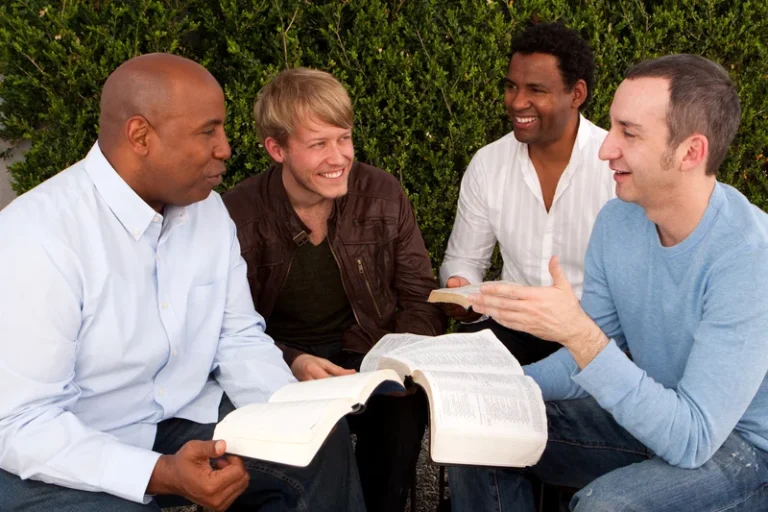
This review reported that CBT in group format was as effective as individual therapy. CBT has been applied both in individual and group modalities, in combination with family approaches and MET. Interventions with the young person alone (for example, CBT or CBT plus MET) have been reported as effective (Dennis et al., 2004; Kaminer & Burleson, 1999; Kaminer et al., 1998). However, much of the evidence base is from approaches dealing with comorbidity such as conduct disorders, and anxiety and affective disorders where information on the extent and severity of alcohol misuse specifically is lacking. Again it appears that the data is primarily concerned with children and young people who did not have a high severity of alcohol misuse.
- Nevertheless, the GDG’s view was that, given the considerable problems that young people face, abstinence remained the preferred goal.
- It might be surprising to hear that you don’t always have to be drinking to extreme levels to become dependent on alcohol.
- The findings were found to be robust in sensitivity analysis and the effects found were not determined by the intensity and duration the motivational intervention.
- We’ll unravel the mysteries of addiction, examine various psychological approaches to understanding alcohol use, and investigate cutting-edge interventions for alcohol-related issues.
- Of the three included trials, two trials evaluating contingency management versus treatment as usual (standard care) met criteria for inclusion.
Drugs & Supplements
If you’re simply looking to speak to someone on the phone or chat online for more advice on your own or someone else’s drinking, get in touch with Drinkchat or Drinkline. Substance abuse If you’re worried about your drinking, get in touch with your local GP surgery, who will be able to help. If you’re worried that you have any of these symptoms, talk to a health professional at your GP surgery or seek further information from one of the organisations at the bottom of this page.
- It is also important to remember that other psychiatric conditions, such as depression or bipolar disorder, may coexist with alcoholism.
- These approaches are not covered within this review and the reader is referred to the separate NICE guidelines that address psychological interventions for specific mental health problems.
- Treating psychological dependencies, however, varies greatly from person to person.
- One study assessing cognitive behavioural therapies versus control could not be added to the meta-analyses.
- People with psychological dependence on alcohol or drugs often experience several symptoms.
- CBT helps individuals identify and change the thoughts and behaviors that contribute to their drinking.
Diagnostic Criteria for Alcohol Use Disorder
Recognizing these signs is crucial for both yourself and those you care about. Some users are prone to psychological dependence no matter what substance they use. This can happen when there are underlying causes of addiction that are not addressed https://ecosoberhouse.com/ or resolved sufficiently to remove the root cause of an individual seeking to use drugs. When conditions like this are present, no amount of detox or maintenance dosing will help. Instead, the individual will need to see counseling to identify the driving forces behind their psychological dependence.
6. OUTCOMES

For example, a person might learn to recognize their triggers for drinking and develop alternative coping strategies. Armed with a deeper understanding of the psychological underpinnings of alcohol use and misuse, psychologists have developed various interventions to address alcohol-related issues. These approaches aim not just to stop drinking, but to address the underlying psychological factors that contribute to problematic alcohol use. Early stage alcoholism might involve occasional binge drinking or using alcohol to cope with stress. As the condition progresses, individuals may experience increased tolerance, withdrawal symptoms, and a loss of control over their drinking.
- The time it takes to overcome alcohol addiction is 10 days in terms of detoxification.
- If you find it very difficult to enjoy yourself or relax without having a drink, you could have become dependent on alcohol.
- However, a subset of items on the CTS accounted for most of this association.
- This study found no significant difference between groups in the number of participants who relapsed or needed further withdrawal management at 3-month follow-up.
Emotional Dysregulation

If you decide to skip the coffee one morning, you’ll probably have a pounding headache and feel generally crummy later in the day. You might notice certain times of the day or being around certain people will make you psychological dependence on alcohol feel more anxious or more depressed and want to drink more. A good first step is to keep a record of how much alcohol you drink and of when you don’t drink throughout the week. Alcohol affects your brain, making you feel relaxed in a small amount of time. As you drink more, you become intoxicated and unsteady, and you might do or say things you normally won’t.


Second, no attempt was made to translate intermediate clinical endpoints such as abstinence rates into QALYs, which are useful to decision makers when assessing the comparative cost effectiveness of healthcare interventions. The study by Mortimer and Segal (2005) conducted separate, mutually exclusive, model-based economic analyses of interventions for ‘problem drinking’ and alcohol dependence. The outcome measure used in the analysis was QALYs calculated from disability weights derived from a single published source (Stouthard et al., 1997).
